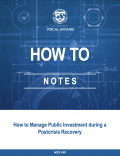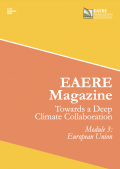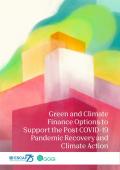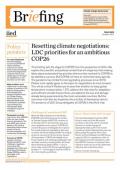This paper highlights that fecal sludge compost could be a solution to increasing agricultural production and improving the nutrient content of soils in Nepal.

This IMF's How To Note on public investment outlines the key components for designing and managing public investment to ensure smart and fair, but also greener recovery from COVID-19.

The quarterly EAERE Magazine is an outlet for new research, projects and other professional news, and features articles that contribute to recent policy discussions and developments in the field of environmental and natural resource economics.
Issue 13 (Module 3: European Union) focuses on climate policy architecture in the European Union, followed by the past and future outlooks of domestic climate policy, as well as outlines the key branches of EU climate diplomacy.
Readers will be able to discern how EU member States recognized that most pollution knows no boundaries, and that there was a compelling logic to ceding some national sovereignty if emissions were to be reduced at scale.

This report examines critical policy gaps and barriers to climate finance, such as constrained fiscal space, weak institutional capacities to implement nationally determined contributions, policy and regulatory gaps, and lack of investment-ready projects.

This briefing paper explores the scientific and political context that will shape how COP26 takes place and present key priorities that must be resolved, especially for Least Developed Countries.
